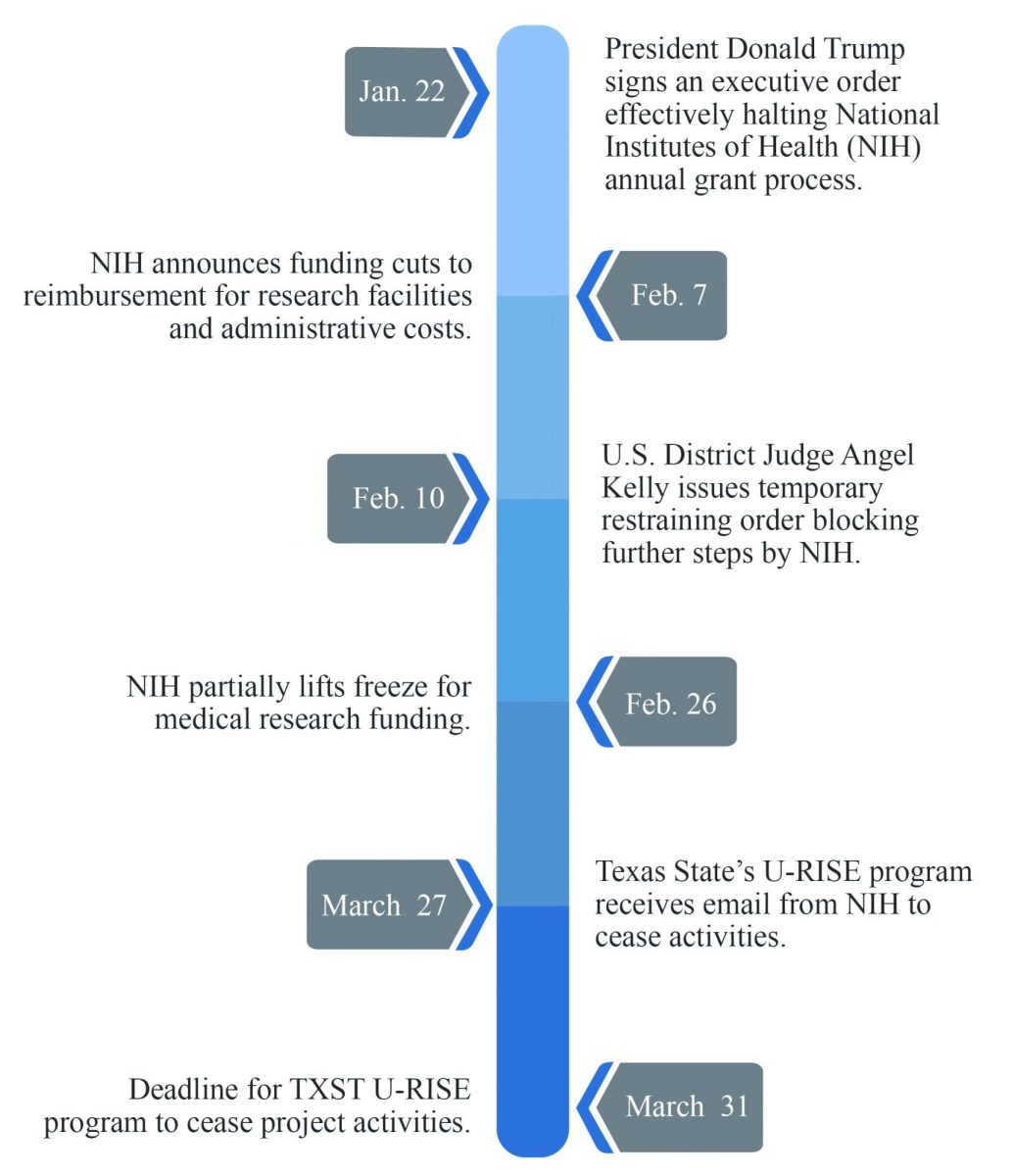The Texas State shuttle system is plagued by issues that affect its popularity among the student body, such as a lack of stops on west campus and the Texas State app regularly crashing or not showing any bus routes.
These issues pale in comparison to one far more important. Every student, regardless of how many classes they’re enrolled in or how often they use the shuttles, is charged a $95 shuttle fee every semester.
Because not every student uses the shuttles, it feels cruel for the university to charge every student a fee for the shuttles, especially when the existence of this fee – and a number of others – is hidden so deeply within one’s billing statement, and is so rarely mentioned by the university itself, that one can’t help but think it was hidden on purpose.
Nicholas Tapscott, a biology freshman and current Student Government senator, said he doesn’t believe there should be a mandatory shuttle charge.
“I think it’s kind of stupid, being charged for something I don’t even use. I don’t see the purpose in that. It’s not fair to us students to be undermined like this,” Tapscott said. “It’s also kind of outrageous, the fact that I’m only learning now that I’m being charged $95 a semester for the bus when I don’t even use it.”
Charging every student for services seems unfair to those who do not need them. To combat this problem, the shuttle system should operate like Booksmart, where students can opt out of the fees, or Metrocard, where students who use the buses regularly pay for an unlimited bus pass attached to their student ID.
Some students, however, fear that instituting an opt-out system would significantly harm their ability to use the school’s transportation system as they need.
“[I use the shuttle] every day,” Edie Koggerson, a civil engineering freshman, said. “It’s helpful to have everybody come together to [pay for the shuttles], like taxes for healthcare… it’s a community thing. Making that kind of [opt-out] system would mess everything up because some students will be paying a lot more in tuition just because other students don’t wanna help them out a little bit.”
Despite the positive aspects for some students, changing the system to be like Booksmart could result in a major loss of funding, but how much funding is required for the program to begin with? Things like maintenance, gas, insurance and salaries add up. But to have 40,000 students pay $95 each semester for just 45 shuttles is excessive and unrealistic, especially considering additional money the shuttle system makes from advertisements.
Students ought to be given more clarity on fees they pay each semester, oftentimes without them even knowing they’re paying said fees. Most Texas State students know what Booksmart is, what it covers and that they can choose to opt out of it. However, no one seems to know what the Institutional Services fee is or why it costs just short of $150 for every standard 3-credit class we take – and the official definition Texas State provides can, at best, be classified as extremely obscure.
The only reason students are aware of Booksmart is because Texas State sends out four emails regarding it each semester and it’s a major subject at orientation. In contrast, the only way anybody would know about the other fees is by checking the details of their actual statement in the billing section of the Texas State app.
Booksmart, in addition, is only $250, while all other fees for a regular semester total $1,492.80. The fact that students are regularly charged in such amounts without a clearly communicated explanation of what those charges are for is unfair.
Of course, the university is entirely within its right to charge students fees for services it provides. However, students deserve more communication and clarity when it comes to fees, and more options like Booksmart should be considered by university officials.
-Nikita Arefiev is an international relations freshman
The University Star welcomes Letters to the Editor from its readers. All submissions are reviewed and considered by the Editor-in-Chief and Opinions Editor for publication. Not all letters are guaranteed for publication.





















